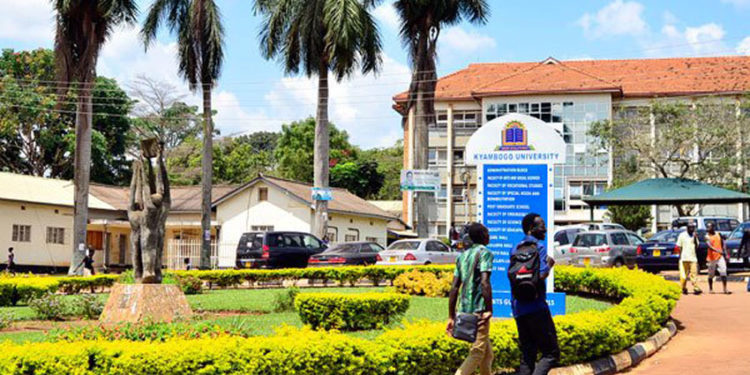Parliament has raised concerns over Kyambogo University’s continued teaching of 63 courses that remain unapproved by the National Council for Higher Education (NCHE). The university has been faulted for failing to initiate the necessary process of renewing these “expired” courses, a requirement mandated by the NCHE to ensure compliance with national academic standards.
The delay in renewing these courses has drawn criticism from lawmakers, who argue that Kyambogo University is compromising the quality of education by offering programs that have not been officially sanctioned.
According to the National Council for Higher Education regulations, universities are required to regularly review and update their curricula to meet evolving academic and industry standards. However, Kyambogo’s administration has reportedly been slow in responding to these requirements, leaving students enrolled in potentially outdated programs.
This situation has raised concerns not only about the student’s academic futures but also about the credibility of the degrees awarded. Without approval from the NCHE, the validity of these qualifications may be questioned by employers and other educational institutions.
According to the Auditor General’s report, the National Council for High Education regulations require a review of academic programs for example, undergraduate after five (05) years, and postgraduate after ten (10) to match the needs of the current environment and economic demands. In the period under review., the Auditor General noted that 63 programs had not been reviewed by NCHE.
While appearing before the lawmakers on the Public Accounts Committee on Friday, the university officials attributed the problem to the prolonged consultation process with several stakeholders that included the education sector, the general public, the academic department, the senate and finally the University Council.
Nevertheless, the lawmakers warned the university officials that delays in the review of Academic Programs and renewal of courses will mean that students offering these courses aren’t in tandem with the needs of the job market.
“These regulations are meant to ensure the appropriateness, relevancy, and adequacy of programmes and courses of study, as well as to maintain the highest standards of qualifications of learners. Failure to comply implies that students continue to study programmes that do not match the needs of the current environment and economic demands. The Accounting Officer should commence starting the consultation process early so that all academic programmes are up to date,” noted Muwanga Kivumbi, Chairperson PAC.
Aside from the courses, MPs also raised concern over the quality of training, students pursuing Civil Engineering are obtaining from Kyambogo University, upon learning that students who are taught for fewer hours are not provided with adequate instructional materials for practical studies.
This followed a discussion on the findings in the Auditor General’s report that revealed that students of Civil and Building Engineering were getting fewer practical hours as per standard and during Semester One, of 2022/23, the Department of Civil and Environmental Engineering did not have instructional materials
“With limited time to practice, the quality of engineering students could be compromised, which affects the competitive age of the students in the Job market. Machines that remain idle for a long time may depreciate fast and eventually fail to work and the University may not achieve value for money spent. The Accounting Officer should continue engaging the Ministry of Finance for additional wages for the appointment of full-time laboratory technicians,” noted Muwanga Kivumbi.
However, the University attributed the challenge to a lack of funds, revealing that although the matter had been presented to the Ministry of Finance and the Ministry of Public Service to seek additional wages to recruit technicians, Kyambogo University had not received feedback.
The report also revealed that the university has long overdue paybles, in the statement of linancial position and on note 27 of the Financial Statements an outstanding payables of UGX 19,952,686,972. Furthermore, trend analysis of the payables revealed that part of the payables included UGX 2,674,549,480 relating to uncleared part time teaching allowances, and UGX 1I,806,570,537 related to un cleared domestic arrears accrued in the financial years prior to 2022/2023.
The university also attributed the accumulation of payables to the impact of COVID 19 where the University had to run three semesters in one financial year and to continued budget cuts by government. Meanwhile,, this comes at a time when the university is facing strikes from students over the 50 per cent tuition increase.
Do you have a story in your community or an opinion to share with us: Email us at editorial@watchdoguganda.com













